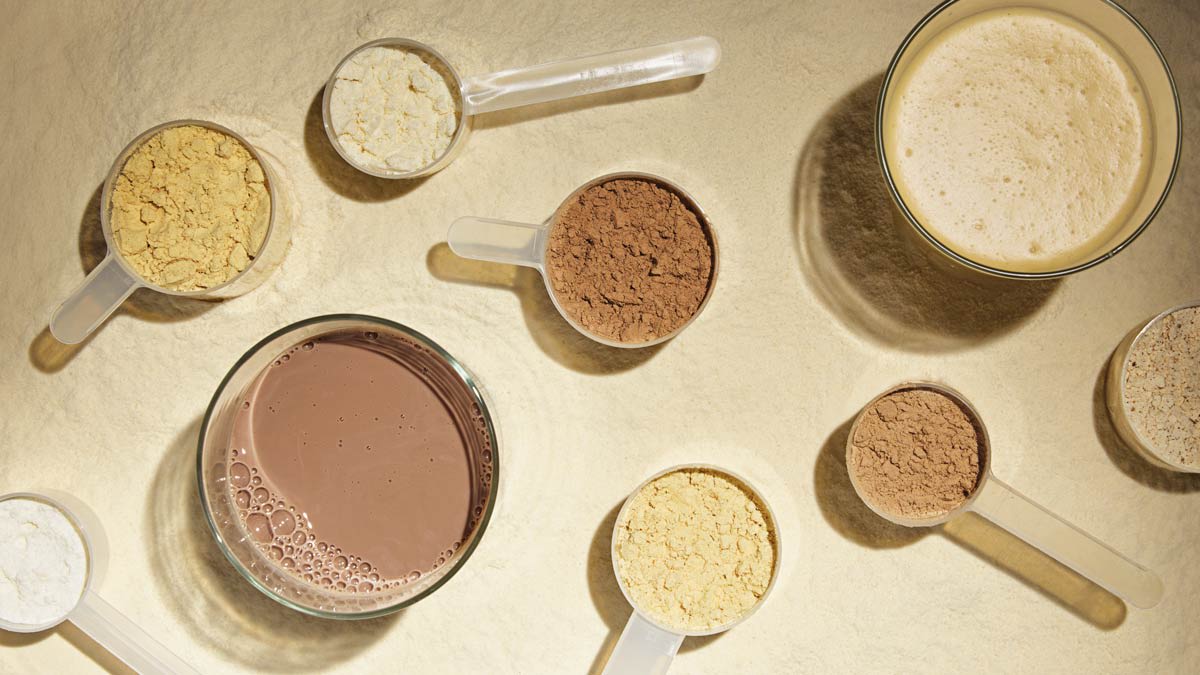Prior to publication, CR contacted the manufacturers of all 23 products we tested and shared with them our results and methodology. Seven companies did not respond to our requests for comment: BSN, Dymatize, Jocko Fuel, Muscle Milk, Owyn, PlantFusion, and Transparent Labs. Optimum Nutrition declined to comment, and Huel did not respond to questions about the amount of cadmium found …
Read More »Tag Archives: protein
Report Finds Lead in Naked Protein Powders and Other Popular Brands – The New York Times
Report Finds Lead in Naked Protein Powders and Other Popular Brands The New York TimesView Full Coverage on Google News Source link
Read More »This special protein found in bacteria could kill cancer cells – Euronews.com
This special protein found in bacteria could kill cancer cells Euronews.com Bacteria hidden inside tumors could help beat cancer ScienceDaily New bacterial protein could make cancer cells kill themselves; study finds Times of India They discover a bacterial mechanism that could destroy tumor cells De Último Minuto Scientists discover bacterial protein making cancer cells self-destruct The News International Source link
Read More »Chinese scientists uncover key mechanism of life evolution using AI protein language model – Dawn
Chinese scientists uncover key mechanism of life evolution using AI protein language model Dawn Chinese scientists uncover mystery of life evolution with AI protein language model chinadailyasia.com Study shows how AI can uncover hidden biological mechanisms Digital Watch Observatory Deep learning tool developed to unravel molecular mechanisms of convergent evolution Phys.org Chinese scientists use AI protein language model to uncover secrets of evolution TV BRICS …
Read More »Which Is Better for Fiber, Magnesium, and Protein?
Nutrition Facts Chia Seeds (1 oz) Pumpkin Seeds (1 oz) Calories 140 160 Protein 4-5 g 9 g Fat 9 g 14 g Carbohydrates 12 g 5 g Fiber 10-11 g 2 g Magnesium 111 mg 150 mg Calcium 212 mg 15 mg Zinc 2 mg 2-3 mg Iron 2 mg 2-3 mg Chia Seeds Have More Fiber If …
Read More »The truth about protein and why you're probably eating enough already – London Evening Standard
The truth about protein and why you’re probably eating enough already London Evening Standard Nutritionists Reveal the #1 High-Protein Food for Muscle Gain Good Housekeeping Too much protein can be dangerous: Hidden health risks you should know Times of India What is the recommended protein intake per day for an average person? Neurologist explains with a warning The Economic Times 10 Foods You Didn’t …
Read More »Billionaire beef boss says Americans crave so much protein the country is outpacing its own production and turning to imports
One of the billionaire brothers behind the biggest meat-processing company in the world is worried about satisfying America’s insatiable craving for protein. Wesley Batista, who, with his brother Joesley Batista, controls the $15 billion Brazilian meat-packing behemoth JBS, said the U.S. needs to import more product from abroad to meet demand. “The U.S. is facing the highest beef price in …
Read More »Scientists Halt Toxic Brain Protein Behind Parkinson’s in Landmark Study – SciTechDaily
Scientists Halt Toxic Brain Protein Behind Parkinson’s in Landmark Study SciTechDaily Source link
Read More »The 5 Healthiest Protein Bars You Can Find at the Supermarket, According to Registered Dietitians
Key Takeaways Not all protein bars are healthy—the best ones provide at least 12 grams of protein, minimal added sugar, and simple, whole food ingredients rather than additives or preservatives. Different types suit different needs, from nut- and seed-based bars packed with healthy fats, to whey or egg white bars that deliver complete proteins, to vegan-friendly plant protein options. Smart …
Read More »I Tried 13 Popular Protein Bars & These Are The Only Ones Worth Buying
With new brands of protein bars popping up all the time, it can be hard to know which one to choose, so I tasted 13 different brands to find the best ones. Aloha Minis won the best for snacking category, and Quest won the high-protein category, while think! proved to be the most packable. RX’s new high-protein bars took first …
Read More »
:max_bytes(150000):strip_icc()/VWH-Chia-Seeds-vs-Pumpkin-Seeds-template-2-f2fa10301bbf4926acc5fd56d2829e61.jpg)
-(1)-12-02-2025-09-46-30.png?width=1200&auto=webp&quality=75)

:max_bytes(150000):strip_icc()/heathiest-protein-bar-GettyImages-1316105608-e7796baf5dc741bc8f3ec368f6aaf60c.jpg)
